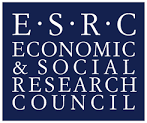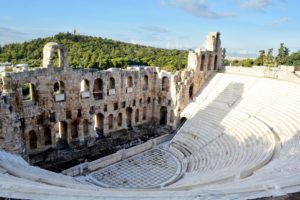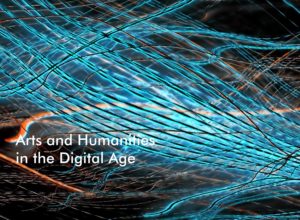Review of Autumn term BGRS training opportunities
This brief review highlights BGRS training and development opportunities organised in the 2017/18 Autumn term. These opportunities are part of a wider landscape of training and development resources available to PhD students at Birkbeck and which are summarised on the BGRS Moodle site. Birkbeck is in the process of establishing Training Needs Analysis for PhD researchers to identify their training priorities and navigate their way through the wide range of opportunities which are available at Birkbeck and beyond.
Autumn term highlights
- PhD students who began recently were invited to attend a workshop titled ‘Making a success of your doctorate’. This all day event led by Professor John Wakeford of the Missenden Centre, provided expert advice and hints covering the organisation and management of PhD research and how best to complete PhD studies.
- Students who were already underway with their PhDs were able to attend a ‘Surviving your Viva, and Beyond’ workshop led by Dr Jennifer Fraser, formerly from the Centre for Transformative Practice in Learning and Teaching at Birkbeck. This interactive workshop helped prepare students for their PhD viva and decisions about what to do afterwards.
Several new sessions have been organised for postgraduate research students. - Birkbeck’s Equality and Diversity Lead, Ammara Khan, ran the first Unconscious Bias Training session for postgraduate research students exploring the concept of unconscious bias and how it could impact on life as a PhD student.
- An Introduction to Public Engagement for Research Students, led by Birkbeck Public Engagement Officer Mary-Clare Hallsworth, provided the tools students need to begin engaging the public with their research.
- In order to supplement existing resources for all Birkbeck researchers a Research Integrity and Ethics Session specifically for PhD students was held by Dr Sarah Lee, Head of Research Strategy Support, in order to provide a better understanding of personal, pragmatic and policy factors and to help attendees apply this in their PhD.
- The Birkbeck Library ran a new Library Support for Researchers workshop highlighting support available to PhD students throughout their research journey.
Drawing on departmental expertise a range of BGRS events were delivered through the College’s generic skills funding awards including:
- A series of sessions led by Dr Lily Ford on the theme of Fair Dealing relating to: use of images in research; film; and art history and culminating in a fair dealing conference.
- Dr Dermot Hodson organised a workshop titled No Trespassing: The Risks and Rewards of Interdisciplinary Research. Antonella Paterri, a Birkbeck MPhil student from the Department of Politics has described some of the benefits of this session on the BGRS blog.
- Other workshops provided training for: impact and communication skills; for how to make calls for papers at academic conferences; good prose writing for PhD Students; and an historical methodological masterclass with Professor Julian Swann.
The BGRS Moodle site will be used to establish digital objects (e.g. handouts or lecture capture) for those who wish to re-visit course material or who were unable to attend on the day. We have begun to make such resources available and will continue to develop this over the coming year.
Opportunities for Birkbeck PhD students to meet
During the Autumn term there have been two opportunities for the wider community of PhD students to gather and meet. The BGRS induction session welcomed new PhD students to Birkbeck and invited returning students to meet at the start of term, with around 70 attendees. Later in the Autumn term the BGRS Winter party provided another opportunity for students to meet with around 50 postgraduate researchers attending.
Shut up and write
We have continued to organise Shut Up and Write sessions, with more than 220 registrations to attend since we began running them in July/ August. During the Autumn term we organised 2 to 3 session every 2 weeks. Attendees have continued to give positive feedback about these writing sessions which provide opportunities to concentrate on writing alongside other PhD researchers and to build connections with those who take part. The BGRS intends to continue these shut up and write sessions throughout the year and registrations are now open for the Spring Term. During the Spring Term we hope to offer a concentrated all day writing event based on the same format as these sessions – this will be announced in due course and listed on the BGRS Eventbrite page.



